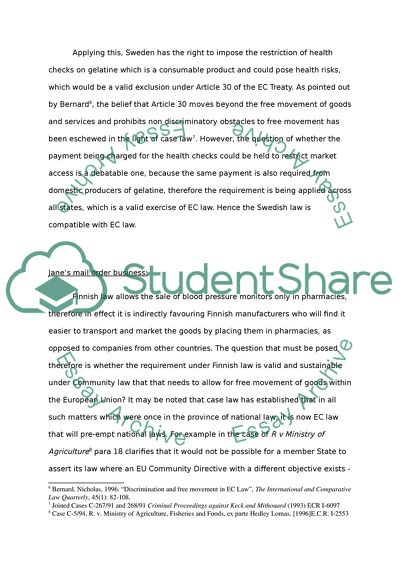Cite this document
(EC LAW Case Study Example | Topics and Well Written Essays - 2000 words, n.d.)
EC LAW Case Study Example | Topics and Well Written Essays - 2000 words. https://studentshare.org/law/1732159-eu-law
EC LAW Case Study Example | Topics and Well Written Essays - 2000 words. https://studentshare.org/law/1732159-eu-law
(EC LAW Case Study Example | Topics and Well Written Essays - 2000 Words)
EC LAW Case Study Example | Topics and Well Written Essays - 2000 Words. https://studentshare.org/law/1732159-eu-law.
EC LAW Case Study Example | Topics and Well Written Essays - 2000 Words. https://studentshare.org/law/1732159-eu-law.
“EC LAW Case Study Example | Topics and Well Written Essays - 2000 Words”. https://studentshare.org/law/1732159-eu-law.


